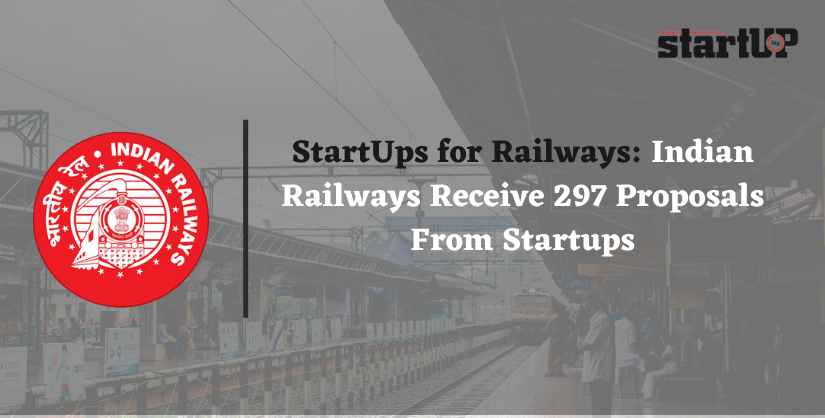StartUps for Railways: Indian Railways Receive 297 Proposals From Startups
According to Railway Minister Ashwini Vaishnaw, the “StartUps for Railways” initiative, which was introduced in June of this year, resulted in 297 startup concepts being submitted to the Indian Railways.
The railway minister tweeted an update with the following information: “Railroad collaborates with start-ups. 11 concerns were addressed by 297 ideas”. He also disclosed how many solutions the startups had offered the Railway Ministry to address the eleven issues. The broken rail detection system received the most ideas, whereas the Headway Improvement System for the suburban sections interoperable with the Indian Railways National ATP system received the fewest (four).
Through the involvement of a very vast and unexplored startup ecosystem, this policy will bring scale and efficiency in the fields of operation, maintenance, and infrastructure building.
The Railway Minister stated earlier, at the initiative’s launch, that start-ups will have a fantastic opportunity to connect with the Railways through this platform. 11 problem statements, including rail fracture and headway reduction, have been selected for phase 1 of this program out of the more than 100 problem statements that Railways received from various divisions, field offices, and zones. In order to find creative solutions, they will be presented before the start-ups.
The Indian Railway Innovation Policy‘s key components are as follows:
- Grant an inventor up to Rs. 1.5 billion on an equal sharing basis with payment provisions for milestones.
- To make the process clear and unbiased, it is carried out entirely online, from posing the problem statement to creating the prototype.
- Prototypes will be tested on the railroads. The deployment will be scaled up with increased financing following the success of the prototypes.
- A fair and open process will be used to choose the innovator(s), and it will all be done online through a portal.
- Intellectual property rights (IPR) that have been developed will exclusively belong to the inventor.
- To innovators, developmental order is guaranteed.
- To prevent delays, the entire product development process should be decentralized at the divisional level.

